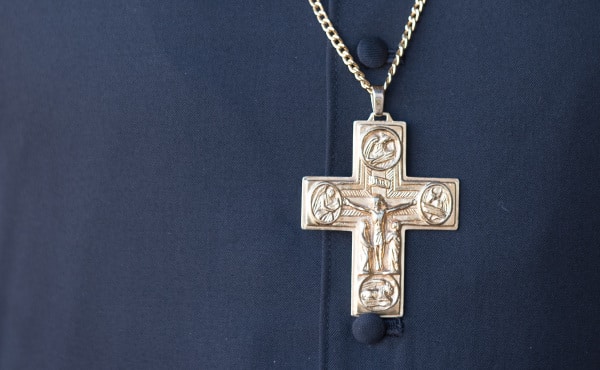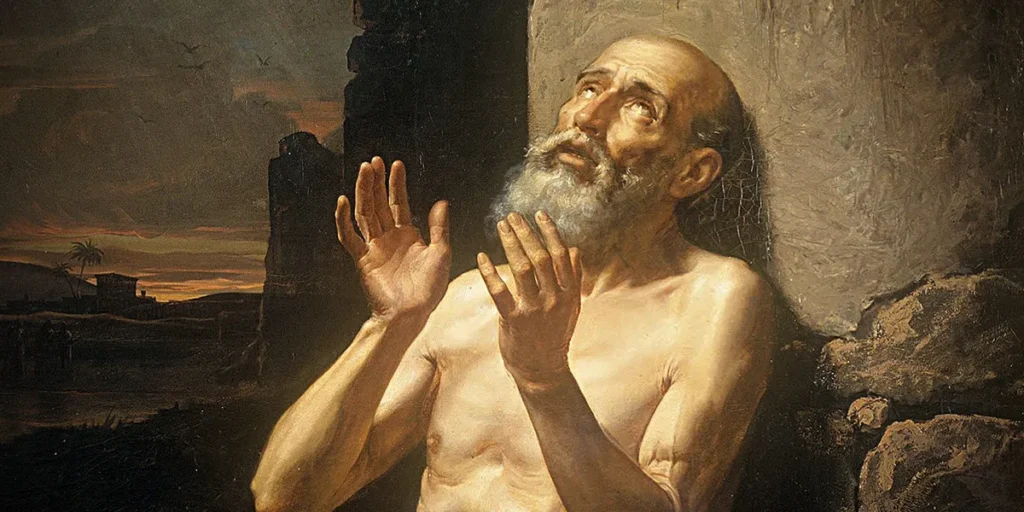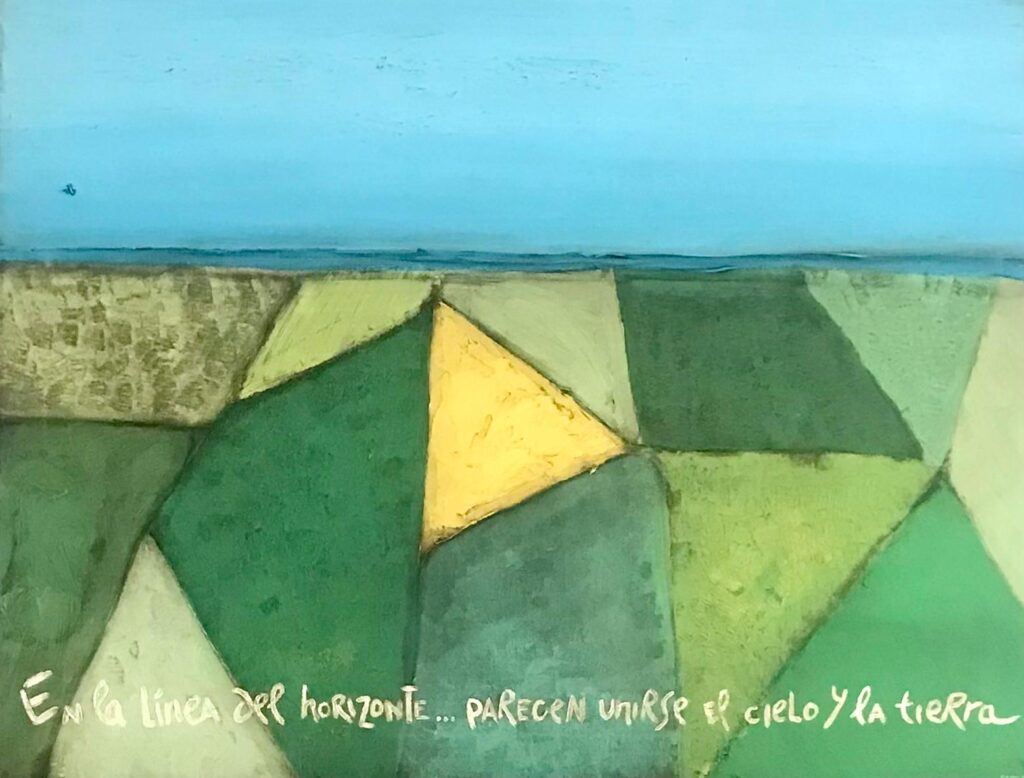The Pope Confirms The Ecclesial Depth Of The Charisma Of Opus Dei
Charisma and hierarchy in Saint Paul

The first session of the XVI Ordinary General Assembly of the Synod of Bishops has recently concluded. The Summary Report “Una Chiesa synodale in missione”, published on 10/28/2023, states among other things:
- 8 i): È necessario continuare ad approfondire la comprensione teologica delle relazioni tra carismi e ministeri in prospettiva missionaria.
- 10 e): Il magistero della Chiesa ha sviluppato un ampio insegnamento sull’importanza dei doni gerarchici e doni carismatici nella vita e nella missione della Chiesa, che richiede una migliore comprensione nella coscienza ecclesiale e nella stessa riflessione teologica.
On the other hand, the Motu proprio Ad carisma tuendum of Pope Francis states that its objective is:
“to confirm the Prelature of Opus Dei in the authentically charismatic sphere of the Church, specifying its organization in keeping with the witness of the Founder, Saint Josemaría Escrivá de Balaguer, and with the teachings of conciliar ecclesiology on personal prelatures.”
In this document, the concept of the “authentically charismatic sphere of the Church” is central, and as far as I know, it appears for the first time in a papal rescript. In line with the recommendations of the Summary Report of the 2023 Synod that I just mentioned, I propose in this brief essay a reflection that can help to better understand this concept and the Pope’s disposition regarding Opus Dei at the dawn of the celebration of the Centenary of this institution.
The Letter Iuvenescit Ecclesia (May 15, 2016) of the Dicastery for the Doctrine of the Faith, develops the theological and ecclesiological elements to characterize the relationship between hierarchical and charismatic gifts in the life and mission of the Church. My reflection is based on the following statement: “Paul himself describes his ministry as an Apostle as “ministry of the Spirit” (2 Cor3, 8).” (Iuvenescit Ecclesia,7)
Indeed, Saint Paul can be considered the source from which the charismatic phenomenon is born, and the representative figure to authentically define it: chosen by the risen Lord outside the group of the twelve, he received extraordinary charismas from the Holy Spirit for the work of evangelization. Peter and the other Apostles (the official hierarchy of the early Church) at the Council of Jerusalem recognized these charisms and entrusted Paul and Barnabas with the pastoral task of contributing in a special way to the evangelization of the people, and added them to the group of the twelve.
Similarly, it can also be said that the community that Saint Paul describes in Romans 16 is an ecclesial reality, charismatic and hierarchical at the same time. Belonging in it through the bond of baptism is lived as a vocational bond or response to a divine call that informs all existence: the collaboration of ordained and lay faithful, men and women, celibate and married in unity of vocation was very effective for the spread of Christianity in the Roman Empire. Vocation and charisma shape the pastoral structure and precede the ecclesiastical jurisdiction.
On the other hand, this interpretation links with the teaching of the Founder of Opus Dei on the early Christians. When asked about the central mission of Opus Dei and about possible precedents in the history of the Church that served as inspiration, he responded:
“The easiest way to understand Opus Dei is to consider the life of the early Christians. They lived their Christian vocation – seriously,seeking earnestly the holiness to which they had been called by their Baptism. Exernally they did nothing to distinguish themselves from their fellow citizens. The members of Opus Dei are ordinary people.They work like everyone else and live in the midst of the world just as they did before they joined.[…] They live like any other Christian citizen who wants to respond fully to the demands of his faith, because that is what they are.” (Conversations, n. 24).
And in a letter from 1965, Saint Josemaría states:
“How well the first Christian generations understood it, about whom I like to talk so much, because they are like a model of our vocation! They lived only thinking about Christ, giving their lives to spread the good news.” (Letter, 24-X-1965, nos. 13-14; also: Letter n. 6 in Letters (II), Rialp 2022).
The vocational character of baptism, typical of the origins of the Church, is also a central point of the teaching of the Founder of Opus Dei on the universal call to holiness and the mission of the lay faithful. Quoting Saint Paul VI, he says:
“The call of God, the baptismal character and the grace make it possible that each Christian can and must fully embody faith. Each Christian must be alter Christus, ipse Christus, present among men. The Holy Father has said it in an unequivocal way: ‘It is necessary to give all its importance again to the fact of having received holy Baptism, that is, of having been grafted, through this sacrament, into the mystical Body of Christ, which is the Church’ (Enc. Ecclesiam suam, part I).” (Conversations 58).
Saint Josemaría conceives the Christian life as a vocation that is born with baptism and leads to transformation in Christ, a path that leads us to be ipse Christus. And he considers divine filiation as the foundation of the spirituality of Opus Dei. Two capital points that the Founder derived mainly from the teaching of Saint Paul.
This teaching is confirmed by the Dogmatic Constitution on the Church of the Second Vatican Council. With the words of this document it can be said that the life of the faithful present in Romans 16 is, ultimately, that of those who “are by baptism made one body with Christ and are constituted among the People of God; they are in their own way made sharers in the priestly, prophetical, and kingly functions of Christ; and they carry out for their own part the mission of the whole Christian people in the Church and in the world.” (Lumen gentium 31 §1).
By foregrounding the charismatic dimension of Opus Dei, the Holy Father Francis helps us to better understand the ecclesial meaning of the charisma received by Saint Josemaría: it is a particular expression of the charisma of Saint Paul, and of the vocational sense proper to the communities of faithful Christians around him, for the evangelization of today’s world through the sanctification of the ordinary circumstances of life, at work and in the family.
This meaning harmonizes with the fact that membership in the Prelature of Opus Dei requires a specific divine call, and, therefore, is defined by a vocational bond, the same for clerics and lay faithful. And this aspect is relevant for our reflection, since, by contrast, belonging to a particular Church, whose canonical framework is the Dicastery for Bishops, is defined by a non-vocational link (domicile, rite, or other comparable ones), as the Motu proprio on personal Prelatures highlights by emphasizing (with a reference to canon 107) that “through domicile, each person acquires his or her Ordinary.” However, the fact that membership in ecclesial jurisdictions is defined by a non-vocational link is a historical development that is consolidated with the division of the Church into territorial dioceses at the end of the 3rd century (in imitation of Diocletian’s administrative reform). in the Roman Empire). The different local Churches were increasingly constituted as pastoral units to efficiently manage the work generated by the fulfillment of the duties of Christian life that emanate from Baptism, and imply a greater or lesser practice of the Sacraments and the fulfillment of the commandments. It can be said that “the success of Christianity” and the growth of the Church conditioned the need to “professionalize the administration of the Sacraments” through administrative circumscriptions. This had the collateral effect of diluting the vocational meaning of baptism, characteristic of the life of the early Christians, for various reasons: the vocational sense of dedication and fervor for evangelization that Saint Paul describes in Romans 16:1-23, ceased to characterize the belonging to the different ecclesiastical circumscriptions, and gave way to an “administrative mentality”. And in a certain way, it can even be said that this state of things was foreseen by the Lord, as the scene of the rich young man shows (Mark 10, 17-30): it is possible to reach eternal life at the end of the life on earth, meeting minimum conditions. However, being a Christian is a vocation to shape one’s life according to the life of Christ, to identify oneself with Christ already here on earth. And if this vocational sense of baptism is lost, the desire to achieve eternal life through “fulfillment of minimum conditions” also ends up being lost.
Precisely, the forms of consecrated life are born from the action of the Spirit in the Church to renew the original radicality of Christian life: “the profession of the evangelical counsels, then, appears as a sign which can and ought to attract all the members of the Church to an effective and prompt fulfillment of the duties of their Christian vocation.” (Lumen gentium 44; cf. Iuvenescit Ecclesia 22c). In an analogous way, it can be said that it is this desire to “go beyond the minimum” that in the last century has given rise to associations of lay faithful to give secular witness of profound Christian life in a secularized society (cf. Iuvenescit Ecclesia 2, 22a). In a certain way it is a desire to return to the life of those ordinary faithful who helped Saint Paul in evangelization. Consecrated life and lay groups are an expression of the charismatic and vocational sphere of the Church (Synod 2023, Summary Report, 10/28/2023), and reveal the uninterrupted action of the Holy Spirit in history to renew the Church (cf. Iuvenescit Ecclesia 2).
On the other hand, when it comes to rediscovering the vocational meaning to “give all its importance again to the fact of having received holy Baptism” (as urged by Paul VI in Ecclesiam suam), and thus also reinforce the vocational dimension of belonging to the local Church, the same historical development shows the convenience of having pastoral structures in the image of those of the origins of the Church that act as leaven; to have, therefore, ecclesial jurisdictions that include clergy and laity, men and women, celibate and married, united by a vocational bond that is added to that of baptism, but not as something superimposed, but as a catalyst that unfolds all the vocational and evangelizing potentiality original to this sacrament. And this is another important aspect of the message that Pope Francis transmits in Ad carisma tuendum: the confirmation of the Prelature of Opus Dei in “the authentically charismatic sphere of the Church” is done, following what Saint John Paul II declared in the Constitution apostolic Ut sit, “so that it may always be a valid and effective instrument of the saving mission that the Church fulfils for the life of the world.” Conclusion that corroborates what the Prelate of Opus Dei tells us regarding the recent dispositions of the Pope: “Since the Work belongs to both God and the Church, the Holy Spirit is guiding us at all times.” (Message of 08/10/2023).
A few months ago, a Madrid newspaper published a report titled “The Opus Dei in the Pope’s sights” (El País, 08/27/2023). The author suggests that the recent decisions of Pope Francis regarding Opus Dei and personal prelatures have “revoked” the ecclesial statute that John Paul II had granted to Opus Dei, a statute that corresponded to the legal solution the Founder, Saint Josemaría, had longed-for so much. The report concludes by saying: “The current crossroads […] will force Opus Dei to retrace a path that seemed to have been trodden.”
In light of the reflection that I have proposed, I rather think that the Pope, like Jesus with the disciples on the way to Emmaus, is helping us to better understand the meaning of the message that Saint Josemaría received from God and the Second Vatican Council confirmed. In short, it encourages us to better walk the path we are walking, in service of a mission that is an update of that that the Council of Jerusalem entrusted to Saint Paul, and which he carried out with “pastoral structures” such as the one described in Romans 16, that is, an ecclesial reality of vocational bond and personal jurisdiction, composed of priests and lay people, men and women, married and celibate. “Turning to him [Saint Paul], both to his apostolic example and to his doctrine, will be a stimulus, if not a guarantee, for the reinforcement of the Christian identity of each one of us and for the rejuvenation of the entire Church. ” (Benedict XVI, General Audience, February 4, 2009).
 (EN)
(EN)
 (ES)
(ES)
 (IT)
(IT)





